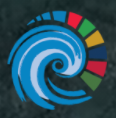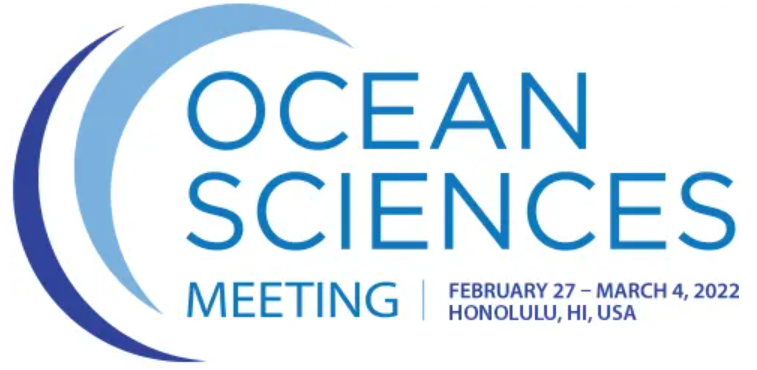The National Ecological Observatory Network, or NEON, offers expert ecological data from terrestrial and aquatic sites across the North American continent and Puerto Rico to power the most important science being done today.
NEON is hiring an Engagement Lead for Boulder, CO headquarters!
“The envisioned outcome of NEON engagement is transformative scientific discovery based on the long-term continental-scale ecological data, samples, and infrastructure of the Observatory. The Engagement Lead will strategically focus priorities of NEON engagement and directly participate in the activities, ideally contributing to data skills training. The Engagement Lead will focus outreach to develop an enabled, diverse and inclusive community of scientists and educators.”
Learn more and apply here: https://jobs.battelle.org/job/
Vacancy Notice: Consultant: development of GOOS Ocean Decade Programmes
Deadline: extended
(11 months)
Background
The Global Ocean Observing System (GOOS) is led by the Intergovernmental Oceanographic Commission (IOC) of UNESCO, and co-sponsored by the World Meteorological Organization (WMO), the United Nations Environment Programme (UNEP) and the International Science Council (ISC). We have been leading the development of a truly global ocean observing system that delivers the essential information needed for our sustainable development, safety, wellbeing and prosperity.
We lead and support a community of international, regional and national ocean observing programmes, governments, UN agencies, research organizations and individual scientists.
The UN Decade of Ocean Science for Sustainable Development 2021-2030 (‘the Ocean Decade’) has a mission for transformative ocean science solutions for sustainable development, connecting people and our ocean. It will provide a ‘once-in-a-lifetime’ opportunity for nations to work together to generate the global ocean science needed to support the sustainable development of our shared ocean.
Launching the Ocean Decade has made GOOS’s work more important than it has ever been. Our observations and predictions are the foundation of much of the exciting work the Ocean Decade will carry out and essential to help give us the ocean we need for the future we want.
GOOS has launched three exciting and transformative Ocean Decade programmes:
- Ocean Observing Co-Design will transform our ocean observing system assessment and design process.
- CoastPredict will revolutionise Global Coastal Ocean observing and forecasting, co-designing the infrastructure needed and offering open and free access to coastal information.
- Observing Together will meet stakeholder needs and make every observation count.
They are the first programmes of many that will actively drive the Ocean Decade. This role will help lift these programmes from ideas into action.
Objective and Purpose of the Assignment
The consultant will work closely with the GOOS Office Headquarters team within the IOC Secretariat to support the leadership of the three GOOS Ocean Decade Programmes in: connecting with partners, supporting communications, organizing governance and management meetings, liaising with the GOOS community, and developing project proposals.
Tasks and Expected Output
Following the evolution of the Ocean Decade programmes and other identified and available support, the consultant will carry out the following general tasks, but will develop quarterly work plans with the supervisor and the leadership of the three programmes to ensure that efforts are targeted where they are most needed:
- Partnership development with a focus on defining and co-designing joint projects.
- Supporting governance and management of the programmes including through the organization of online meetings and the preparation of documentation, including mapping out a three-year plan.
- Supporting communications with the programme partners and potential supporters, and providing material for GOOS communications
- Engaging with the GOOS implementation planning process so that lines of work are included and recognized as part of a broader GOOS Core Team and partner implementation.
- Coordinating across the GOOS Programmes, other relevant Decade programmes and projects, the GOOS Core Team, and with the Ocean Decade and its team more broadly.
- Developing investable project proposals and plans that help advance the GOOS Ocean Decade programmes.
Qualifications and experience
The consultant will have a relevant academic qualification(s), and have relevant professional expertise, with experience in the following areas:
- Project development and management
- Successful experience in building partnerships
- Demonstrated experience or interest in ocean observing
- Good written English skills, with ability in another UNESCO language a plus
- Demonstrated competencies in: a results focus, teamwork
- Experience in leading and managing change would be a plus
Previous connection or interaction with GOOS and work in an international context are desirable further qualifications for selection.
See application details on the job listing at the IOC UNESCO website.
Proposals can be emailed to f.collins@unesco.org.
Vacancy Notice: Consultant to support the Global Ocean Observing System (GOOS) in communications and national focal point engagement
Deadline: extended
(11 months)
Background
The Global Ocean Observing System (GOOS) is led by the Intergovernmental Oceanographic Commission (IOC) of UNESCO, and co-sponsored by the World Meteorological Organization (WMO), the United Nations Environment Programme (UNEP) and the International Science Council (ISC). We have been leading the development of a truly global ocean observing system that delivers the essential information needed for our sustainable development, safety, wellbeing and prosperity.
We lead and support a community of international, regional and national ocean observing programmes, governments, UN agencies, research organizations and individual scientists.
Under the Global Ocean Observing System 2030 Strategy, a key objective is to build advocacy and visibility with stakeholders through communicating with key users and national funders. GOOS is developing a Communications Strategy which will guide its actions, and has developed new terms of reference for National Focal Points as a key point of engagement for the programme.
Objective and Purpose of the Assignment
The consultant will work closely with the GOOS Office Headquarters team (within the IOC Secretariat) to undertake two distinct tasks: providing communications support to the team, and fostering the links between GOOS and National Focal Points.
Tasks and Expected Output
Task 1: GOOS communications support
In line with the GOOS Communication Strategy (currently under development) and under the guidance of and responding to the needs of the distributed GOOS Office team, the consultant will provide communication support to the team, in the process developing a clear outline for a long-term junior GOOS communications support role. This will involve:
- Preparing information for the GOOS Update, a news email that goes out to the GOOS community, from base material provided by GOOS team members, including formatting and sending the Update as well as shorter GOOS Briefs through Mailchimp software.
- Preparing GOOS press releases, based selected news from across the system, with GOOS Team support for content and contacts.
- Preparing GOOS news articles for the goosocean.org website
- Production of small brochure or thought pieces (see the Ocean Observing System Report Card and Impact of Covid-19 on the Observing System Brief as examples), and preparing communications material for the GOOS National Focal Points (see below).
- Liaising with communications teams in IOC and GOOS co-sponsors around the press releases, and to develop an understanding of co-sponsor and partner interests.
- Tracking the uptake of GOOS communications.
- Other communications projects as identified by the GOOS Office Headquarters team.
Task 2: GOOS communications support
The consultant will support the GOOS National Focal Points (see draft terms of reference) in undertaking their responsibilities in a national context and in fostering the links between GOOS and the GOOS National Focal Points. This will involve:
- Develop a communications plan and undertake communications with the GOOS National Focal Points.
- Act as a point of contact for the GOOS National Focal Points, responding to questions and providing information on other Focal Points, such as IOC, observing networks, GOOS Regional Alliances (GRAs), etc. in their country.
- Work region by region to gain GOOS National Focal Points where there is not yet representation, to increase the number of GOOS National Focal Points and global representation.
- Develop a first ‘all hands on deck’ GOOS National Focal Point (virtual) meeting in early 2022, with support from the GOOS Office Headquarters. This would focus on discussion of the role and national committees, exchange experience on national ocean observing challenges and success stories, develop a plan for future meetings, and provide feedback to GOOS.
- Longer-term, engage with GOOS and the National Focal Points to develop reporting and feedback mechanisms.
- Liaise with relevant parts of GOOS to support alignment of action.
Duration of the consultancy
The consultancy will be for 11 months with an initial 2 month probationary period. The position would ideally be based in Paris, France but other locations will be considered provided that the consultant can demonstrate his/her ability to work remotely as part of the IOC team.
Qualifications and experience
- The consultant will have a relevant academic qualification(s), and have relevant professional expertise, with experience in the following areas:
- Excellent written English skills, with ability in another UNESCO language a plus
- Successful work experience in communications, including in the production of material for the web and print
- Demonstrated experience or interest in ocean science
- Demonstrated results focus and competency in planning and organizing, teamwork
See application details on the job listing at the IOC UNESCO website.
Proposals can be mailed to f.collins@unesco.org.





